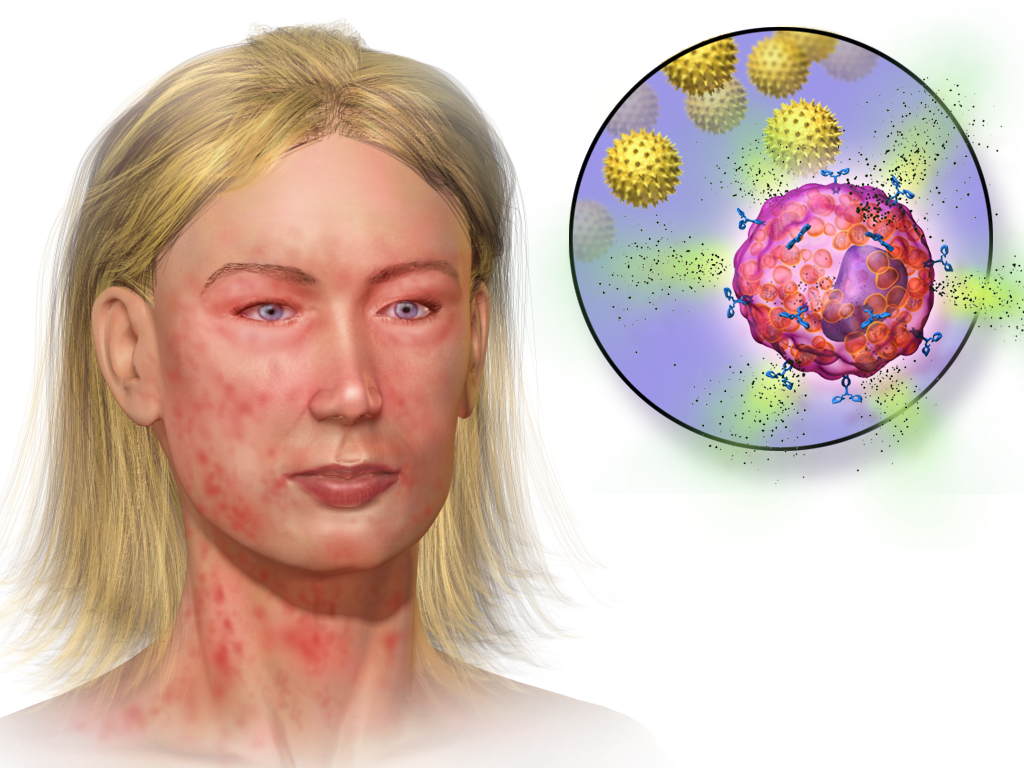What is an anaphylaxis reaction?

Anaphylaxis reaction is a potentially life-threatening condition. It is a medical emergency that needs urgent medical attention. An anaphylaxis reaction can occur within minutes to seconds of having exposure to an allergen. The allergen can be anything – a bee venom, peanut, almond, or any kind of artificial color, and many other things.
During an anaphylaxis reaction, your body perceives the allergen as a foreign particle and starts fighting against it. To get rid of it, your body releases an inflammatory chemical called histamine, which, in turn, causes severe allergy. Histamine causes bronchoconstriction that makes it difficult for you to breathe. Moreover, it causes your blood pressure to drop and that can lead to shock. Along with this, it causes excessive mucus production, which also causes severe difficulty breathing. If you notice anyone having an anaphylaxis reaction, you should rush to the hospital. For its treatment, epinephrine is used as a first-line treatment. If you have an epinephrine injection in hand, administer it first and then take the patient to the hospital. A person suffering from recurrent anaphylaxis reactions should consult with a healthcare provider. For that, you can visit General Physician in Lahore.
Your doctor can help you determine the allergen that causes you an anaphylaxis reaction.
Signs and symptoms
The signs and symptoms of an anaphylaxis reaction may start to occur within minutes to seconds after exposure to the trigger. However, sometimes it may take up to half an hour to show up completely. The signs and symptoms of an anaphylaxis reaction are:
- Severe difficulty in breathing
- Drop-in blood pressure
- Dizziness
- Fainting
- A weak and rapid pulse
- Swollen tongue and throat that makes it difficult to breathe
- Excessive mucus production
- Cough
Causes
The main cause of an anaphylaxis reaction is hypersensitivity of your immune system. During an anaphylaxis reaction, your body perceives the allergen as a foreign particle and starts fighting against it. To get rid of it, your body releases an inflammatory chemical called histamine. That, in turn, causes severe allergy.
Even if you have the first anaphylaxis reaction of low severity, the second one might be more severe. Therefore it is most important to know the allergen causing anaphylaxis. It is because you can only avoid the trigger when you know about it. When you don’t know the trigger, you will be unable to avoid it.
Triggers for an anaphylaxis reaction can be:
- Certain kind of antibiotics
- Aspirin
- Certain contrasts used in radiological imaging
- Bee sting
- Hornets sting
- Certain kind of fabric
- Latex
- Food like almonds, peanuts oysters, fish, and many others
- Food additives like artificial colors and flavors
How to avoid an anaphylaxis reaction?
To avoid an anaphylaxis reaction, the most important step is to know the trigger causing it. For that, you can maintain a diary. Write down every detail in it, like what you eat, what you wear, what you do, and where you go. Doing this routine can help you rule out the allergen. Moreover, your health care providers will conduct an antigen test that confirms the hypersensitivity to the allergen. After that, you should avoid exposure to the trigger at all costs. If it occurs due to some food, you should read the label first before eating anything packaged.
Conclusion
Anaphylaxis is a reaction that occurs due to the hypersensitivity of your body to a substance. It can be life-threatening. Therefore you should take the patient as soon as possible to the hospital. Do not wait for the symptoms to resolve. If you have had an anaphylaxis reaction, you must keep an epinephrine injection with you handy. Make sure you do not miss carrying it anywhere. If you have had an anaphylaxis reaction recently, you must visit the General Physician in Karachi


Comments are closed.